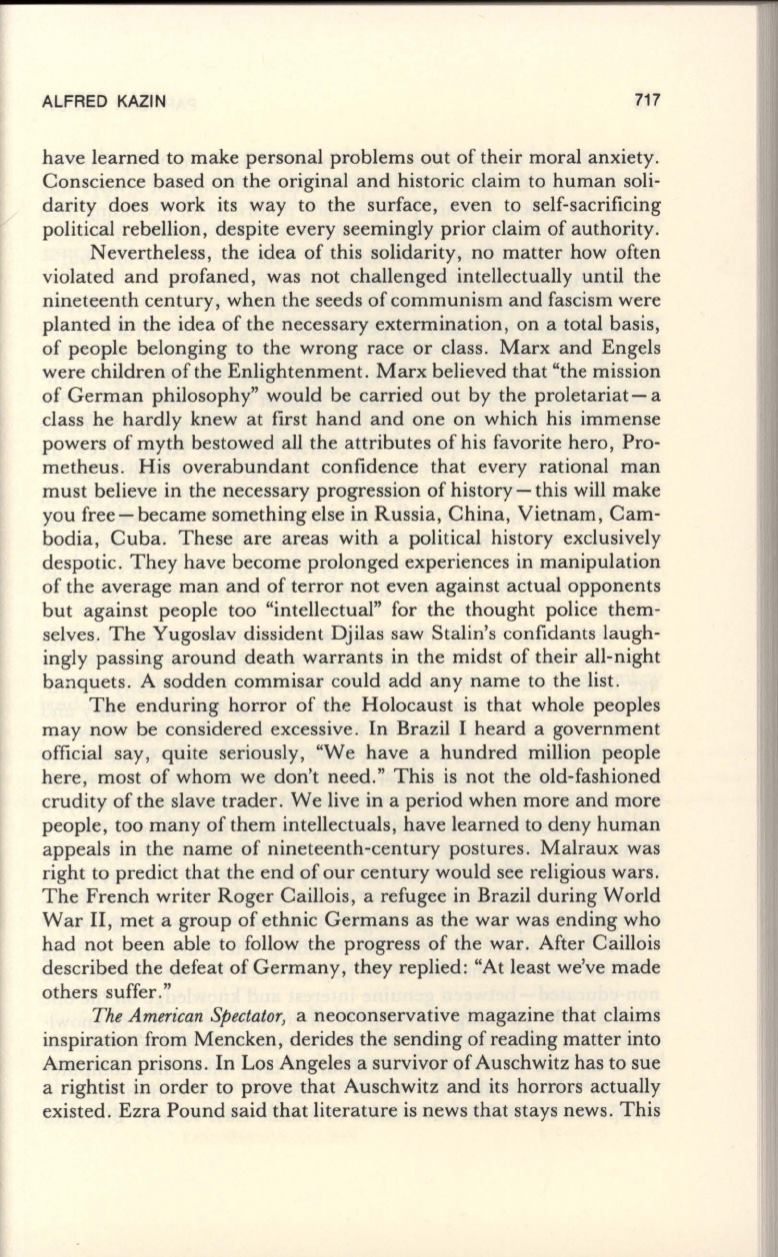
ALFRED KAZIN
717
have learned to make personal problems out of their moral anxiety.
Conscience based on the original and historic claim to human soli–
darity does work its way to the surface, even to self-sacrificing
political rebellion, despite every seemingly prior claim of authority.
Nevertheless, the idea of this solidarity, no matter how often
violated and profaned, was not challenged intellectually until the
nineteenth century, when the seeds of communism and fascism were
planted in the idea of the necessary extermination, on a total basis,
of people belonging to the wrong race or class. Marx and Engels
were children of the Enlightenment. Marx believed that "the mission
of German philosophy" would be carried out by the proletariat- a
class he hardly knew at first hand and one on which his immense
powers of myth bestowed all the attributes of his favorite hero, Pro–
metheus . His overabundant confidence that every rational man
must believe in the necessary progression of history- this will make
you free- became something else in Russia, China, Vietnam, Cam–
bodia, Cuba. These are areas with a political history exclusively
despotic. They have become prolonged experiences in manipulation
of the average man and of terror not even against actual opponents
but against people too "intellectual" for the thought police them–
selves. The Yugoslav dissident Djilas saw Stalin's confidants laugh–
ingly passing around death warrants in the midst of their all-night
ba:tquets . A sodden commisar could add any name to the list.
The enduring horror of the Holocaust is that whole peoples
may now be considered excessive. In Brazil I heard a government
official say, quite seriously, "We have a hundred million people
here, most of whom we don't need." This is not the old-fashioned
crudity of the slave trader. We live in a period when more and more
people, too many of them intellectuals, have learned to deny human
appeals in the name of nineteenth-century postures. Malraux was
right to predict that the end of our century would see religious wars .
The French writer Roger Caillois, a refugee in Brazil during World
War II, met a group of ethnic Germans as the war was ending who
had not been able to follow the progress of the war. After Caillois
described the defeat of Germany, they replied: "At least we've made
others suffer."
The American Spectator,
a neoconservative magazine that claims
inspiration from Mencken, derides the sending of reading matter into
American prisons . In Los Angeles a survivor of Auschwitz has to sue
a rightist in order to prove that Auschwitz and its horrors actually
existed . Ezra Pound said that literature is news that stays news . This


